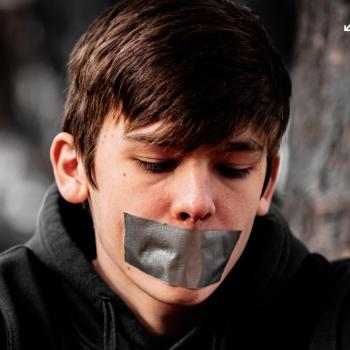 Watching the Rosie O'Donnell segment of "Who Do You Think You Are?" reminded me of the suffering that we all have in our past. O'Donnell was visibly touched; she said that learning about the suffering of her ancestors changed her life. Anyone who has done genealogy is likely to have had her experience.
Watching the Rosie O'Donnell segment of "Who Do You Think You Are?" reminded me of the suffering that we all have in our past. O'Donnell was visibly touched; she said that learning about the suffering of her ancestors changed her life. Anyone who has done genealogy is likely to have had her experience.
When we talk about our ancestry, we like to talk about the ancestors who came over on the Mayflower, or Charlemagne, or kings and queens, or knights and ladies. We rarely think about the many, more ordinary, people who made our lives possible. Even the suffering of our famous ancestors was likely to have sometimes been great, and the suffering of those who are now mostly unknown was usually greater than that.
The suffering of my ancestors is part of what has made my life possible, a life relatively free of suffering. Indeed, had they not suffered, I would not exist. For example, some of my ancestors, like some of O'Donnells, immigrated to the Americas because of their suffering, and they made marriages and families that could not have been without that immigration.
But it is not only the suffering of our ancestors that makes our lives possible. Marcus Halevi had an experience similar to O'Donnell's when, after years of photographing the victims of war and other injustices around the world, he photographed a woman at the moment she was washed into the sea and drowned. Realizing that he was benefitting from the pain of others made him take up photography differently ("This American Life," season one, act 2). I don't know enough to decide what Halevi should have done, but his experience and O'Donnell's remind me that we cannot be innocent of the suffering of others, indeed of benefitting from their suffering.
I can theoretically be innocent of intentionally causing others to suffer in any significant way. But I doubt that any human being has not intentionally caused another to suffer—through an unkind word, a frowning look, a self-defensive accusation. If such things count—and how can they not?—then no one escapes the indictment of having intentionally caused others to suffer.
Theory aside, however, we all benefit from the suffering of others, even if unintentionally, even if against our intentions. When, in The Brothers Karamazov, Ivan asks Alyosha whether he would be willing to build his "edifice of human destiny" on the unavenged tears of one innocent victim, Alyosha answers, "No." But he is wrong. He should have said, "I have unavoidably already done so." Alyosha's instinct is understandable. He would not will the suffering of another, nor intentionally benefit from it. But in spite of his instinct, as a being of flesh he cannot avoid causing the suffering of others or benefitting from it.
The United States is built on the suffering of those who fought in the Revolutionary War. It is built on the suffering of those who died as bystanders in that war. It is built on the suffering of those on both sides who were killed during the Civil War, combatants and noncombatants. It is built on the suffering of slaves and indentured servants, and on the suffering of immigrants like those O'Donnell discovered in her family tree. We are hardly unique; every country has a similar story of the suffering upon which it has been built, much of it the suffering of innocents.
If we unavoidably benefit from the suffering of others, then we cannot expect vengeance when we, too, suffer innocently. It is not a question of cosmic, karmic justice in which we must pay for the innocent suffering from which we have benefitted by suffering innocently ourselves, balancing one measure of suffering with another, as if there were a measure for suffering! Rather, we must recognize that innocent suffering is at the heart of human experience.
That our lives depend on the suffering of others is not something to bewail since it cannot be otherwise for those who have bodies of flesh. We ought never to intentionally inflict suffering on the innocent. More than that, we should always try to decrease their suffering. But regardless of what we do to avoid causing suffering or to ameliorate it, as living members of an incarnate economy in which we cannot but have gained from the innocent suffering of another, it is impossible to opt out of that economy when we are the sufferer rather than the advantaged.





